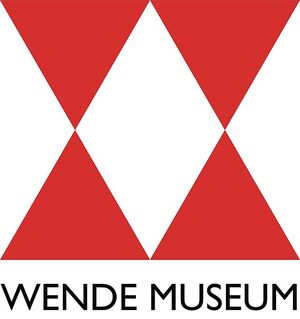Thomas Mann House Events Archive
December 2024
Realignment & Resilience
Thomas Mann House (1550 N San Remo Drive, CA 90272)
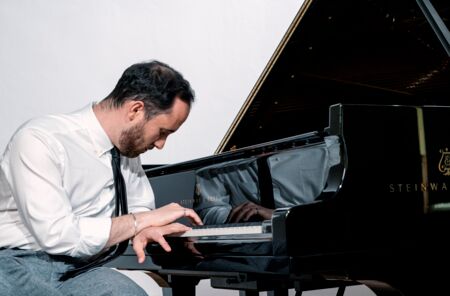
Attendance by invitation only
Information
"In times of crisis, we must all decide again and again whom we love."
- Frank O'Hara, Meditations in an Emergency
And so what now? In these times of crisis, who do we turn to, and what do we turn towards? Who do we love, who are still our friends?
In a wide-ranging conversation, punctuated by surprise musical interludes, Honorary Thomas Mann Fellow Igor Levit, prompted by Paul Holdengraber's questions and quotations, will discuss in what ways the world in disarray around us enters into the concert hall and on to the black and white keys of the piano.
Does a life devoted to art, the life of a world-famous pianist, shield or mitigate the crisis felt all around us? Does playing the piano offer solace, a refuge, a recalibration of the chaos outside? In these uncertain times, Levit brings his doubts, anxieties, broken ideals and desire for joy into play at the Thomas Mann House.
Participants
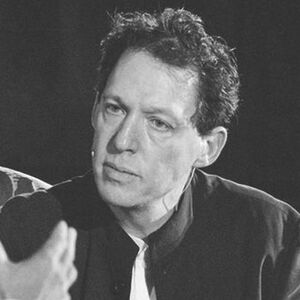
Paul Holdengräber is an interviewer, curator of public curiosity, and was the Founding Executive Director of Onassis Los Angeles (OLA). Prior he was Founder and Director of The New York Public Library’s LIVE from the NYPLcultural series where he interviewed and hosted over 600 events, including interviews with Patti Smith, Wes Anderson, Mike Tyson, Werner Herzog and many more. Before his tenure at the library, he was the Founder and Director of The Institute for Art & Cultures at the LACMA. He holds a Ph.D. in comparative literature from Princeton University. In 2003, the French Government named him Chevalier des Arts et des Lettres, and then promoted him in 2012 to the rank of Commandeur des Arts et des Lettres. In 2010, The President of Austria awarded him the Austrian Cross of Honor for Science and Art.
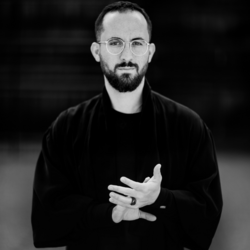
Igor Levit, born in Nizhny Novgorod, moved to Germany with his family at the age of eight. He completed his piano studies at the Hanover University of Music, Drama and Media. In the spring of 2019, he was appointed professor of piano at his alma mater. Since the spring of 2022, Igor Levit has been co-artistic director of the Heidelberger Frühling international music festival. The New York Times describes Igor Levit as one of the "most important artists of his generation," while the Süddeutsche Zeitung calls him a "stroke of luck" for today's concert scene. For his “house concerts” as a sign of hope and public spirit, as well as for his fight against anti-Semitism, Igor Levit was awarded the Order of Merit of the Federal Republic of Germany in the fall of 2020. Together with Georg Diez, Igor Levit is an Honorary Fellow of the Thomas Mann House.
How to Survive the 21st Century: An Explorative Discussion
Goethe-Institut Los Angeles (1901 W 7th St Suite A/B, Los Angeles, CA 90057)
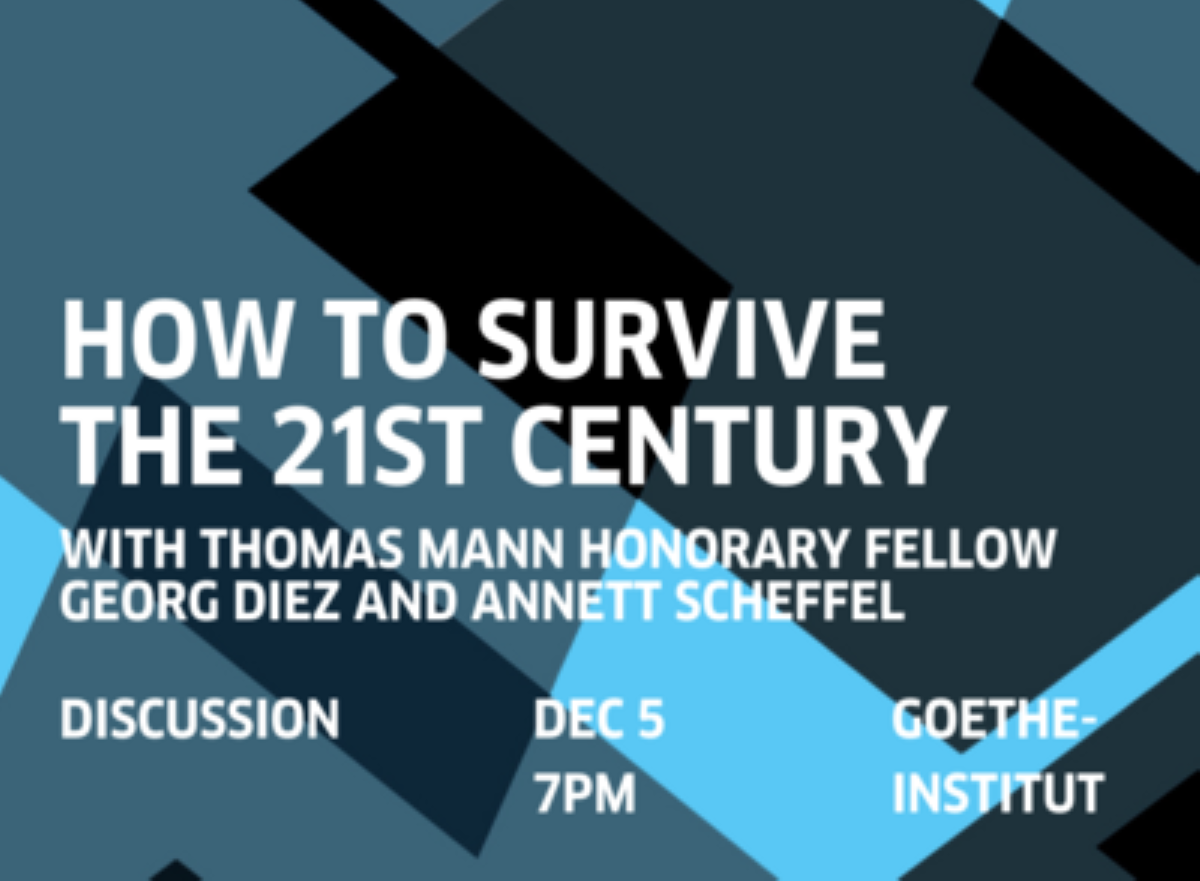
Information
Moderated by Annett Scheffel, this explorative discussion brings together a diverse group of stakeholders who lead transformative processes and bring their own experiences to the table. Together with you, the audience, we intend to explore a new vocabulary for democracy in the 21st century and find common understandings for the basics of our shared existence on planet Earth.
Join us for an open discussion, share your thoughts and let’s see where it takes us!
This event is part of the project Double Exposure, a series of talks and discussions that focuses on the question of what the idea of solidarity means in different contexts. What matters more: Community or society? Individual freedom or solidarity? These questions are of great urgency in our current times. Polarization and division seem to be the tried and tested means of political discussion. Global migration is intensifying the discussion about who has what duties toward whom, who should show solidarity toward whom, and who can be denied solidarity.
Participants
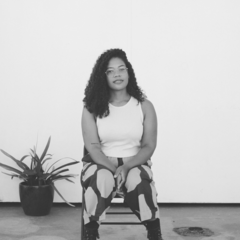
Ashley Blakeney is a Los-Angeles based arts healing facilitator and cultural leader with more than a decade of experience working in arts organizations and education. As the Executive Director at the Crenshaw Dairy Mart since 2021, Blakeney works to help communities of color imagine new systems for a more equitable world. Working at the intersection of abolition and healing, Blakeney’s professional and personal focus centers on cultivating safe spaces for creative expression.
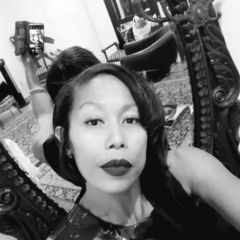
Pauletta Pierce is the founder of the all WOC bike collective “Date with the Night,” and the creator of “Vibing with Cultural Leafs” - a 10-week curriculum to cultivate critical thinkers within the youth of Los Angeles through educational workshops and the arts. Her current cultural activities also include working as Director of Creative Development with East Wind Foundation, a youth organization in L.A. Chinatown.
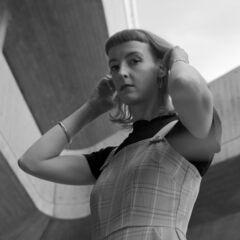
Annett Scheffel is a culture writer, editor, speaker, and presenter based in Los Angeles and Berlin. She thinks, writes, and talks about music, film, feminism, and contemporary culture for the Süddeutsche Zeitung, Spiegel Online, Zeit Online, Musikexpress, Dummy Magazin, and Deutschlandfunk — preferably at the intersection between identity, society, and politics.

Georg Diez is an author and journalist and currently a fellow at the Max Planck Institute in Göttingen and at ProjectTogether in Berlin, where he researches on democratic innovation. He previously worked as editor-in-chief of The New Institute, as a columnist for Spiegel Online, and for the feature sections of Die Zeit, Frankfurter Allgemeine Sonntagszeitung, and Süddeutsche Zeitung. For 2024, he is preparing an exhibition at Hamburg's Deichtorhallen entitled Survival in the 21st Century. Georg Diez lives in Berlin and Stockholm. Together with Igor Levit, Georg Diez is an Honorary Fellow of the Thomas Mann House.
Partners
The talk is hosted by the Goethe-Institut Los Angeles in Collaboration with the American Council on Germany
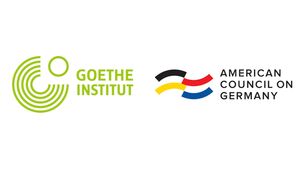
Are we still living in the nineties?!
Thomas Mann House (1550 N San Remo Drive, CA 90272)
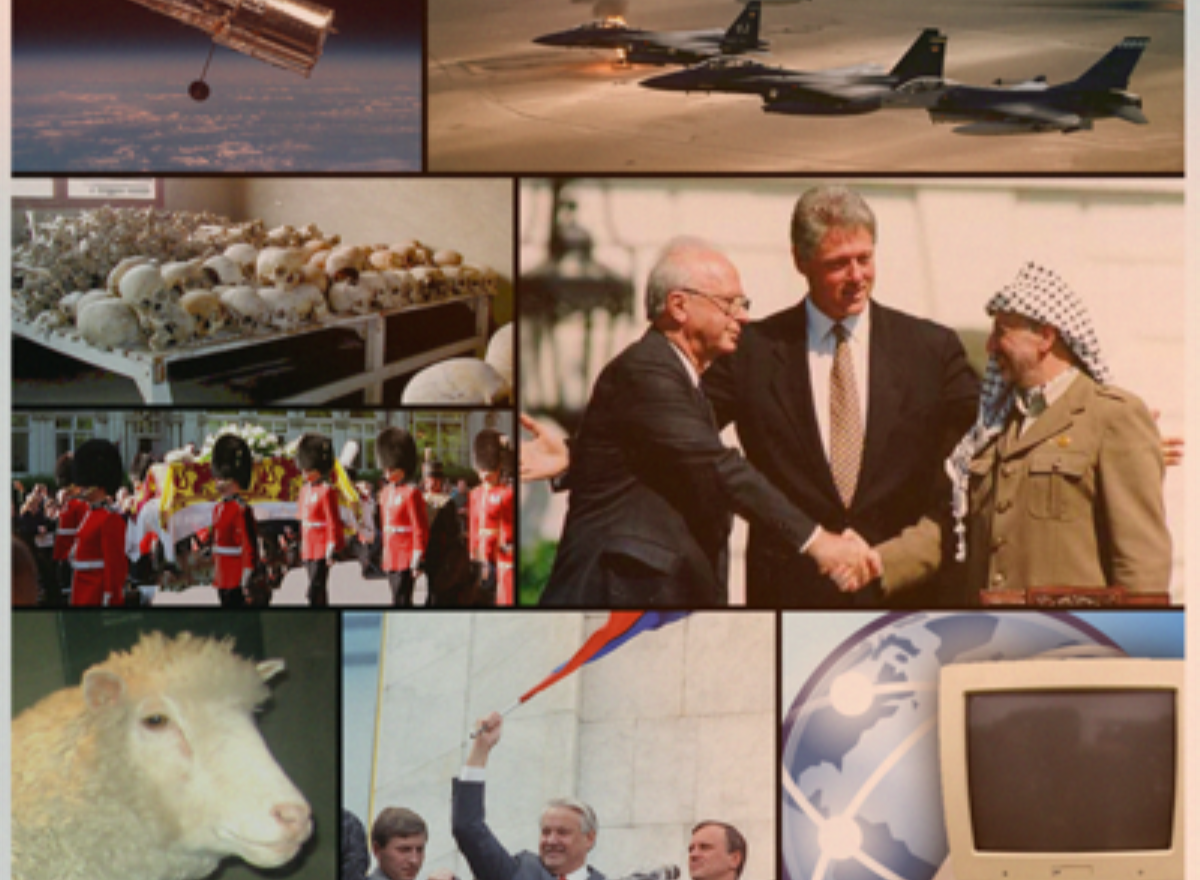
Information
The 1990s ended, some say, in 2016 with the first election of Donald Trump – which means that ever since, we have been living in an interregnum. In order to grasp the present rupture, we need to understand the forces that shaped the last political order, or, as the historian Gary Gerstle calls it, the “neoliberal order:” the 1990s with their combination of free trade, deregulation, a technological revolution, and the promise of “lifting all boats.”
The election results in 2024 can be read as an even more forceful pushback against this order. But what generated this pushback? What unleashed this illiberal energy and created the inequality at the core of so many political developments today? How exactly does this connect to the 1990s, this decade still perceived as a honeymoon with history, until something went terribly wrong? The story of the 1990s, as it turns out, rests on a lot of false assumptions, willful amnesia, and a strategic naiveté that is now collapsing in plain sight.
In a panel discussion hosted by Honorary Fellow Georg Diez, the guests will discuss the role and failed promises of the 1990s in shaping our political present, and how the central idea of the 90s – that markets come first and democracy comes second – would eventually lead to a democratic decline and a loss of a sense of agency among a populace which is ready to take it back. Or are they?
Participants

Georg Diez is an author and journalist and currently a fellow at the Max Planck Institute in Göttingen and at ProjectTogether in Berlin, where he researches on democratic innovation. He previously worked as editor-in-chief of The New Institute, as a columnist for Spiegel Online, and for the feature sections of Die Zeit, Frankfurter Allgemeine Sonntagszeitung, and Süddeutsche Zeitung. For 2024, he is preparing an exhibition at Hamburg's Deichtorhallen entitled Survival in the 21st Century. Georg Diez lives in Berlin and Stockholm.

Lily Geismer is Professor of History at Claremont McKenna College. Geismer’s research and teaching focuses on 20th century political and urban history in the United States, especially liberalism and the Democratic Party. She is the author of Left Behind: The Democrats’ Failed Attempt to Solve Inequality (PublicAffairs, 2022), and Don’t Blame Us: Suburban Liberals and the Transformation of the Democratic Party (Princeton University Press, 2015). She is also co-editor of Shaped by the State: Toward a New Political History of the Twentieth Century (University of Chicago Press, 2019) and her work has appeared in the Journal of American History, The New York Times, among others.
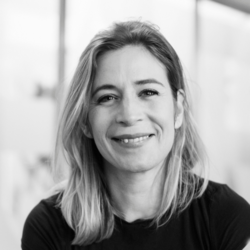
Karin Pettersson is the Culture Editor of Aftonbladet, Scandinavia's biggest daily newspaper, and one of Sweden's most well-known journalists. She has a long background in journalism and politics, having founded leading news magazine Fokus, as well as worked at the Ministry of Finance as a political advisor. She is an economist by training, with a MSc from Stockholm School of Economics, and a 2017 Nieman Fellow from Harvard University.
Student Council on "Democracy and Vulnerability"
Online
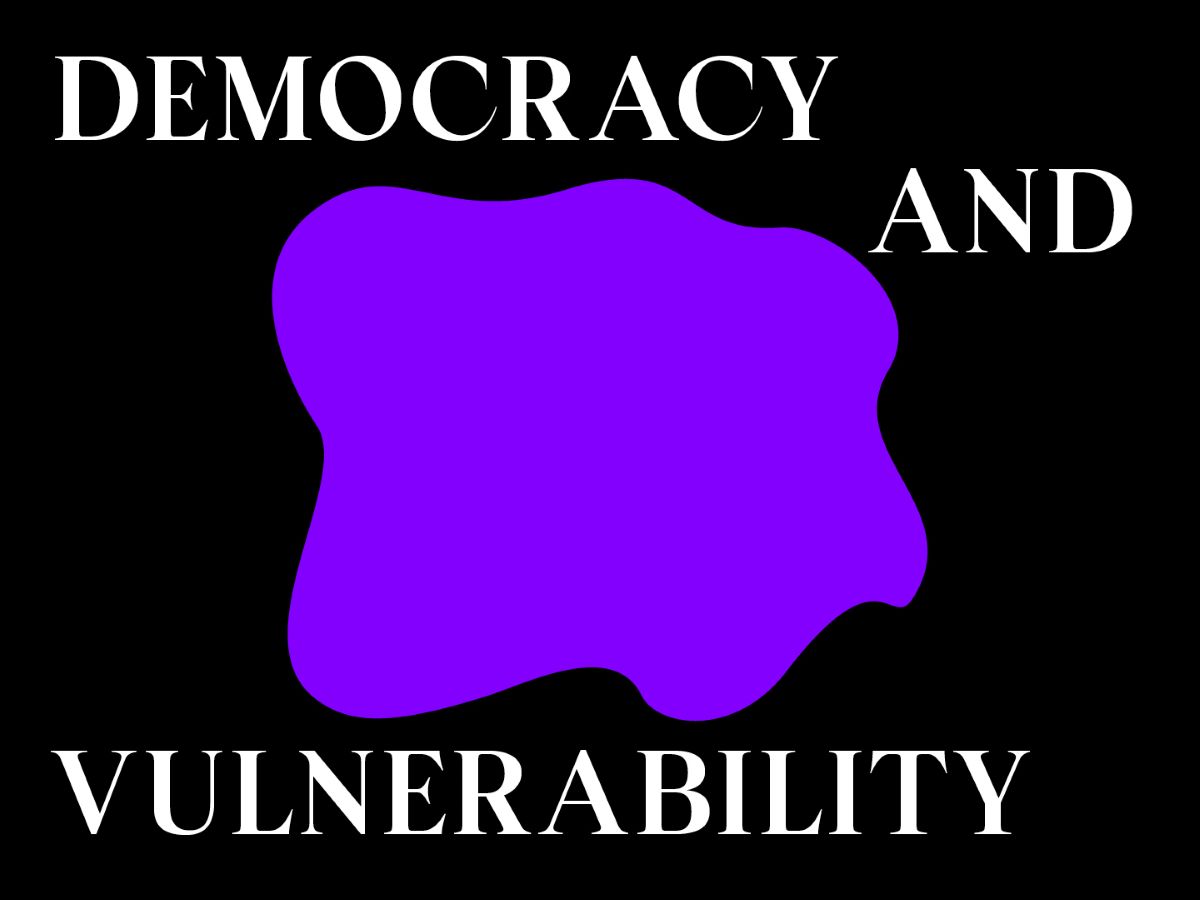
Information
How should a democracy deal with its vulnerabilities? How do democracies need to evolve to deal successfully with increasing global levels of ecological crisis, geopolitical tensions, economic disparities, and culture wars? How much vulnerability can a democracy endure?
The Student Council consists of a team of highly engaged, talented, and diverse undergraduate and graduate students who invite prominent guest speakers to discuss topics relating to society, politics, culture, and art. In conversation with academics, journalists, politicians, and artists, the students will explore the various threats to democratic institutions and principles worldwide, as well as strategies to potentially overcome these threats.
Participant
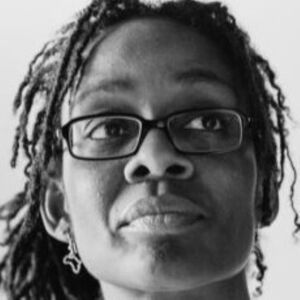
Sharon Dodua Otoo is a novelist and political activist. Otoo won the Ingeborg Bachmann Prize in 2016 with the text Herr Gröttrup setzt sich hin. Her first novel Adas Raum was published by S. Fischer Verlag in 2021 and has been translated into several languages, including two English language versions Ada's Realm (MacLehose Press, 2023) and Ada's Room (Riverhead Books, 2023). In collaboration with the Ruhrfestspiele, one of the oldest, largest, and most renowned theatre festivals in Europe, she curates the Black German-language literature festival "Resonanzen".
Previous Episodes
Find previous interviews on YouTube, as podcasts on dublab radio or written recaps by our students on the Thomas Mann House blog.
All members
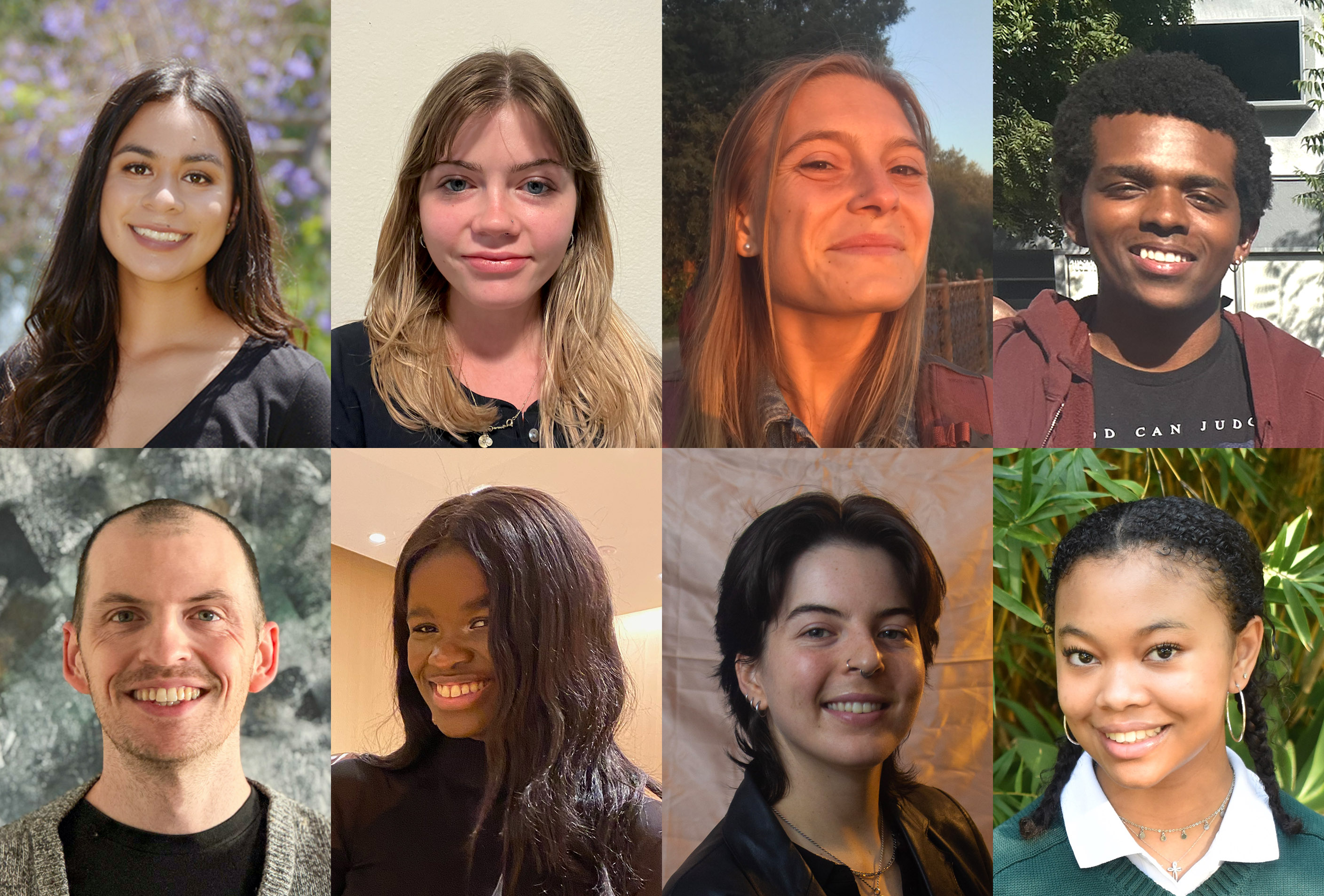
Sara Abrahamsson is a fourth-year student at UCLA studying Art History and French. As a culmination of her artistic and academic interest in political graphics, Sara is currently writing her senior thesis paper on the internationalist poster art of post-revolutionary Cuba. Upon graduating, she plans to continue working in museums before pursuing graduate studies in Art History or Art Conservation.
Amy Cabrales is a First-Generation fourth-year undergraduate student at UCLA, studying Sociology and the Russian Language. She is a Mexican-American, Los Angeles native born in Lynwood, California. Her career interests include cross-cultural education via museum work or language instruction and immigrant resettlement, while her academic interests include immigrant integration and self-identity across immigrant generations. She is anticipating returning to Almaty, Kazakhstan for the 2024-25 academic year to inform these interests and advance her Russian proficiency.
Elsa Coony is a fourth-year student at the University of California, Los Angeles double majoring in Global Studies and German. She has previously worked at the United States Holocaust Memorial Museum as both a docent and translator and is excited to join this year's council. In the future, she hopes to pursue a career in international development.
Biruke Dix is currently a 2nd year student at UCLA studying Applied Mathematics. He joined the Wende Student Council in 2024 and is deeply invested in the ever-changing properties of art as well as social habits. He hopes that he can create language and conversation that promotes the spread of cultural shifts and social justice.
Matthew Jones is a third-year PhD student in Claremont Graduate University’s Cultural Studies and Museum Studies program. His research currently explores how sites connected to authoritarian regimes function as pilgrimage destinations and what strategies states and institutions employ to reduce extremist attachment at these sites. He is thrilled to continue his training with the Wende Museum through this collaboration with the Thomas Mann House.
Emma Larson is a master's student at Columbia University's Harriman Institute of Russian, Eurasian, and Eastern European Studies. There, she focuses on the gender, social, and political history of Central Asia. Before starting at Columbia, Emma taught English in Kazakhstan with the Fulbright Program. She graduated from Williams College with degrees in History and Russian in 2021.
Zora Nelson is a current undergraduate student at New York University, where she is studying Harp Performance and Media, Culture, and Communication. As an east coaster born and raised in Philadelphia, Pennsylvania, she discovered the Wende Museum in the summer of 2022 and is honored to be a part of the council. With a passion for writing, Zora sees a future in storytelling to promote social justice.
Lexi Tooley is a current sophomore at the University of Pennsylvania majoring in Political Science and Art History, minoring in Chinese Language and Culture. She is originally from Los Angeles, California, and attended the Archer School for Girls. Lexi has been working with the Wende Museum for the past 2 years. She looks forward to continuing the search for truth and examining the vulnerability of democracy through this program!





